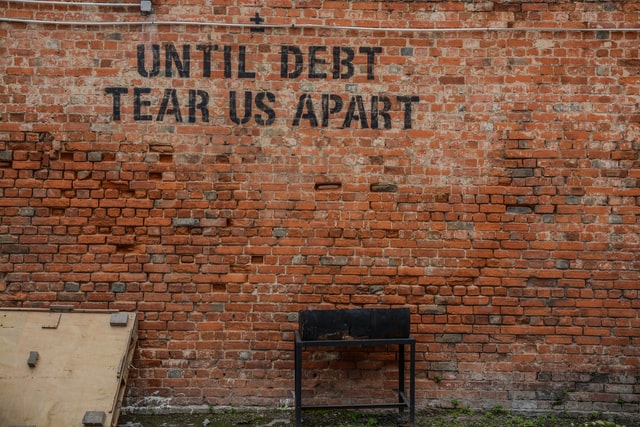
How global economic inequalities puts us all in danger.
Photo by Alice Pasqual on Unsplash
By Hannah Griffin
Over recent decades the global economic inequality gap has significantly worsened and is only continuing to do so. The negative impacts this has on society, politics and the environment will only progress and magnify in the coming decades, yet there’s minor change being made to help the situation.
To provide perspective, the 2022 World Inequalities Report helps us to see the extremeness of this situation. One key finding is the distribution of wealth globally showed that the worlds bottom 50% of the population owned only 2% of global wealth, compared to the top 10% which owned 76% of global wealth. The vast inequalities in wealth distribution are growing and worsened by the recent pandemic, where those poorest suffered for daily necessities. Forbes analysis reports show that over the COVID 19 pandemic, that the combined wealth of Americas billions increased by 70.3% whereas 19% of those grouped into having the lowest income (under $25,000 annually) in America lost their jobs. Although America has one of the most developed economy’s large inequalities still exist, so those in lesser developed countries are unarguably being affected the worst globally.
Why is this? In a world with amazing scientific and technological advances being made every day, how can half of the world only own such a low percentage of wealth? This could be the inevitable result of capitalism which has become dominate due to large scale globalisation, which has been worsened by colonialism meaning those in lesser developed countries face greater inequalities. Capitalism relies on consumer greed and those in power exploiting workers/ those at the bottom as they have little choice. Furthermore, studies by Branco Milanovic showed that 60-70% of your wealth will be dictated by your parents’ income and your citizenship, meaning those born into wealthier families and countries have a natural advantage, creating an unequal opportunity.
How can this endanger us all? The vast global inequalities have significant impact on society, politics, and the environment globally. Inequality creates social ills, such as: low levels of trust, mental illness, addictions, infant mortality, children’s educational performance, homicides, imprisonment rates, crime, and social mobility. Sociologists Kate Pickett and Richard Wilkinson argue in their book ‘The Spirit Level’ that these social problems are more prevalent in societies which have greater social inequality, as people affected do not have the same access to certain opportunities or resources as others. For example, a lack of good nutrition, medicine, necessities (housing, water); basic needs we take for granted have profound effect on peoples mental and physical health and may lead to those turning to other ‘social ills’ such as crime, addiction etc. This is a constant cycle that is extremely difficult to break out of, especially with little help being provided. This will create unsafe societies and restrict economic growth in countries that are facing large levels of these problems.
Global and national economic inequality can be detrimental to politics and political institutions. Firstly, countries with greater inequality and large economic divides will have lower levels of trust in politics and face greater levels of undue political influence. Those who are wealthier gain more political power and influence over certain policies, which can lead to unproportioned representation and undermining democratic processes. This is prominent in American politics, in the 2016 election the NRA allocated 96% (overall $54 million) of its spending to Trumps and other Republicans campaigns. Furthermore, counties with great economic inequality are subject to political and economic instability. The need for more social welfare is a necessity however can reduce economic growth and increasing the expenditure of the government may lead to higher taxes or less funding for other political/social institutions. However, I agree with the need for greater political help and provision such as welfare to improve social health and wellbeing, I am showing how those who are not subject to this help are still affected by it. This introduces another issue that arises in politics is that trying to provide the right social help and welfare may not be in the best interest of those who have voted in certain governments, meaning those wealthier having more influence in politics may cause the government not providing help to those who face greater inequality, meaning this constant cycle has no end.
I hope to have shed some light on the situation that we are globally facing and how dangerous this can be for everyone globally. A vicious cycle continues to trap people in places of inequality, and this is not going to end without great social awareness and pressure to begin to change.

0 Comments